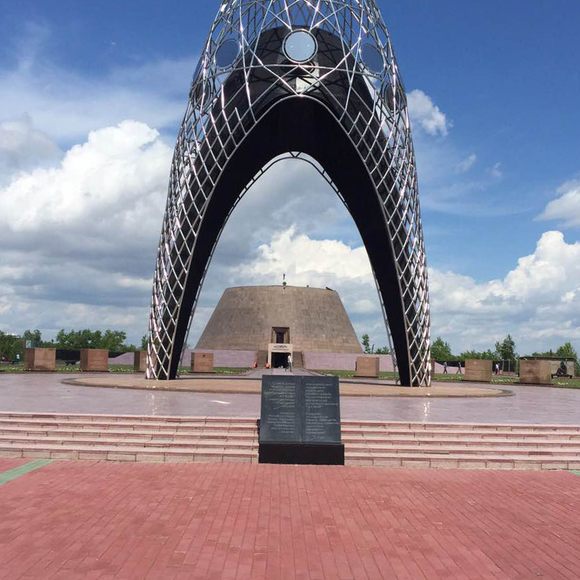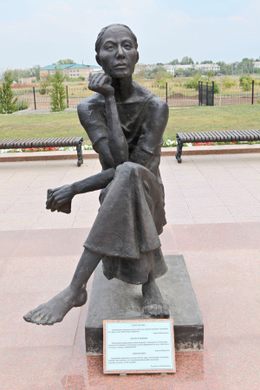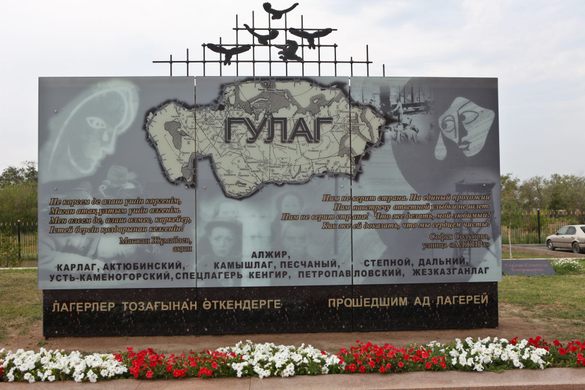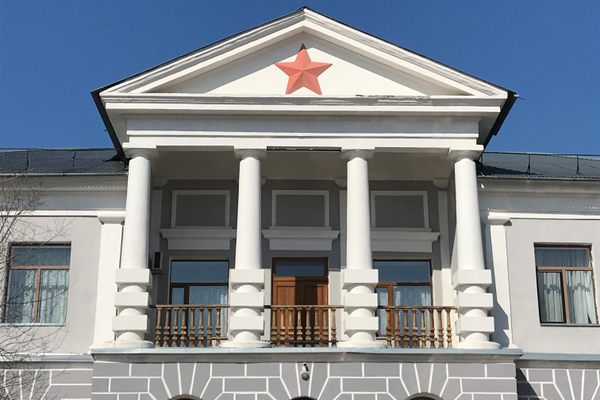ALZHIR
A Stalinist prison camp for the wives and children of men accused of betraying the Soviet state is now a memorial museum.
In the midst of Kazakhstan’s steppe is a former Stalinist prison camp, where a memorial complex and museum now candidly pay respect to those who suffered at the hands of the totalitarian Soviet state—in particular, the wives of the men who were accused of betraying the motherland.
Visitors to Kazakhstan’s capital city, Astana, will revel in the Vegas-like atmosphere of gleaming new buildings dominated by shimmering gold and blue glass and metal. Sightseers might marvel at the height and design of the Emerald Towers, gazing at the impossibly futuristic skyline along the way to visit the top of the iconic Baiterek Tower and take in an unlikely panorama of the Central Asian steppe.
Astana also has a much darker history lurking on the fringes of the affluent power hub. In the 1930s in the town of Akmol, about 20 miles west of Astana, Joseph Stalin established a special gulag named the “Akmola Labor Camp for the Wives of the Betrayers of the Homeland,” more commonly known by its Russian acronym, ALZHIR. The camp imprisoned women and children whose only crime was to be related to a man who had been denounced by the state, often for no discernible reason.
In this Kafkaesque setting, the prisoners toiled at producing clothes and materials for soldiers fighting in World War II. Summers here experience temperatures approaching 100 degrees Fahrenheit while in winter, the mercury can sag to less than 40 below, and camp conditions were hardly sufficient to accommodate the climate.
Remarkably, Kazakhstan’s officials do not attempt to obscure this dismal heritage, but rather have built and promoted a museum to commemorate those who suffered and died at ALZHIR. A historic rail transport, reconstructed guard tower, and multiple sculptures surround the uniquely designed museum, which contains numerous relics and related stories that recount the painful details of prison life. The biographies of those who survived are a true testament to the strength of the human spirit. Sadly, as the exhibits demonstrate, too many women’s stories ended in tragedy.
Know Before You Go
The museum is about 20 miles southwest of Astana and is largely accommodating for English only speakers.

















Follow us on Twitter to get the latest on the world's hidden wonders.
Like us on Facebook to get the latest on the world's hidden wonders.
Follow us on Twitter Like us on Facebook